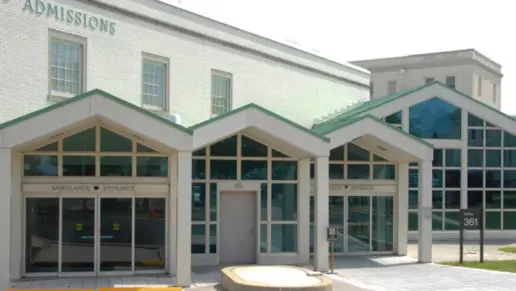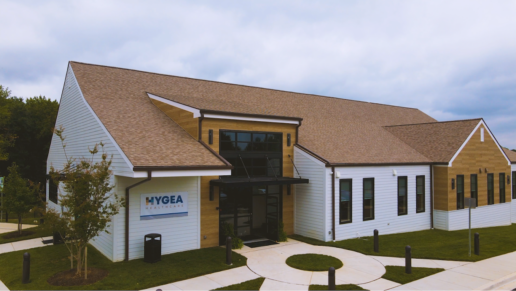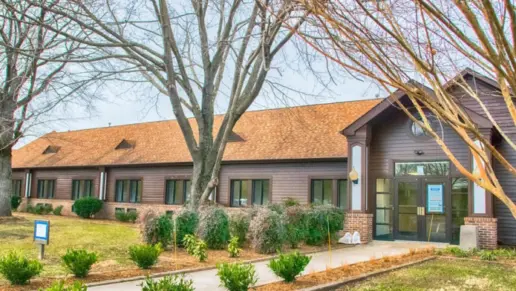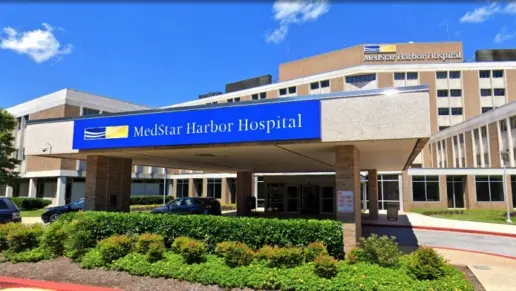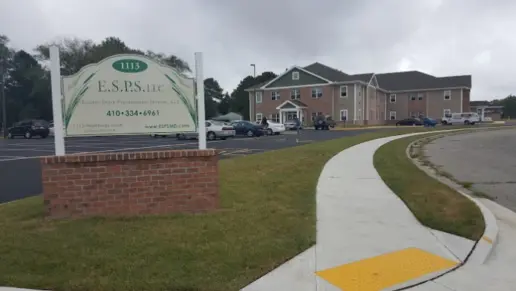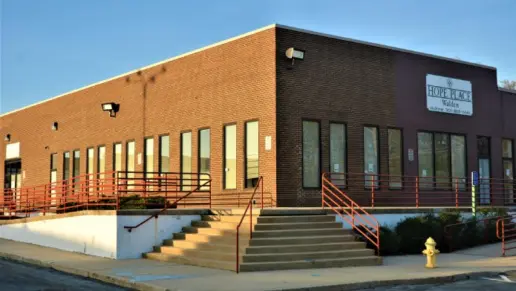Extremely professional and personable facility, very funny rehab I never thought would be this fun.
About Serenity Acres – 2017 Martins Grant Court
Serenity Acres was a luxury addiction treatment center in Crownsville, Maryland. They were part of Meridian Behavioral Health of Minnesota. The center was the vision of entrepreneur Larry Adler, who saw an opportunity to bring a unique style of addiction treatment to the East Coast. His approach was inspired by a popular model in California, where state laws allow treatment centers to convert residential homes into boutique rehab centers. This model made it possible to bring addiction treatment into suburban neighborhoods.
When Larry Adler started Serenity Acres, it consisted of seven homes. Meridian Behavioral Health bought the center in 2016. In late 2018, they began networking with many major health insurance providers. Meridien officially closed the center in August 2019.
They provided both short- and long-term residential rehab for adults, with separate homes for men and women. Many patients participated in medically supervised detox, which helped them safely manage withdrawal symptoms.
The center emphasized evidence based and personalized therapy options. Their treatment philosophy was that each patient was an individual. They believed recovery was possible through healing of the body, mind, and spirit. Before closing, Serenity Acres was a place where many patients experienced lasting recovery through both traditional therapy and holistic options. Patients seemed to enjoy equine therapy, acupuncture, yoga, and massage while in treatment.
The center was known for its caring staff and supportive atmosphere, with some clients describing it as life-changing. Though some holistic therapies were phased out before the center closed, the personalized care and transformative programs helped many patients achieve long term recovery.
Facility Overview
Rehab Score
Other Forms of Payment
Private insurance refers to any kind of healthcare coverage that isn't from the state or federal government. This includes individual and family plans offered by an employer or purchased from the Insurance Marketplace. Every plan will have different requirements and out of pocket costs so be sure to get the full details before you start treatment.
Self-pay involves paying for treatment out of your own pocket. You can use savings or credit, get a personal loan, or receive help from family and friends to fund your treatment. If you don't have insurance or your insurance plan doesn't cover a specific program, self-pay can help ensure you still get the care you need.
Military members, veterans, and eligible dependents have access to specific insurance programs that help them get the care they need. TRICARE and VA insurance can help you access low cost or no cost addiction and mental health treatment. Programs that accept military insurance often have targeted treatment focused on the unique challenges military members, veterans, and their families face.
Addiction Treatments
Levels of Care
Treatments
The goal of treatment for alcoholism is abstinence. Those with poor social support, poor motivation, or psychiatric disorders tend to relapse within a few years of treatment. For these people, success is measured by longer periods of abstinence, reduced use of alcohol, better health, and improved social functioning. Recovery and Maintenance are usually based on 12 step programs and AA meetings.
Once a person has become addicted to a substance, drug rehab in Maryland is often necessary to overcome that addiction. These programs provide the tools individuals need to manage the physical, mental, and emotional issues involved and begin a successful recovery journey.
Dual Diagnosis refers to someone suffering from both a drug or alcohol addiction and a co-occurring mental illness, such as bipolar disorder or depression. They utilize traditional and holistic therapies to treat the different conditions of the residents.
A combined mental health and substance abuse rehab has the staff and resources available to handle individuals with both mental health and substance abuse issues. It can be challenging to determine where a specific symptom stems from (a mental health issue or an issue related to substance abuse), so mental health and substance abuse professionals are helpful in detangling symptoms and keeping treatment on track.
Opioid rehabs specialize in supporting those recovering from opioid addiction. They treat those suffering from addiction to illegal opioids like heroin, as well as prescription drugs like oxycodone. These centers typically combine both physical as well as mental and emotional support to help stop addiction. Physical support often includes medical detox and subsequent medical support (including medication), and mental support includes in-depth therapy to address the underlying causes of addiction.
Programs


Clinical Services
Cognitive Behavioral Therapy (CBT) is a therapy modality that focuses on the relationship between one's thoughts, feelings, and behaviors. It is used to establish and allow for healthy responses to thoughts and feelings (instead of unhealthy responses, like using drugs or alcohol). CBT has been proven effective for recovering addicts of all kinds, and is used to strengthen a patient's own self-awareness and ability to self-regulate. CBT allows individuals to monitor their own emotional state, become more adept at communicating with others, and manage stress without needing to engage in substance abuse. The goal of this therapy is to teach the clients to recognize situations in which they are most likely to drink or use drugs.
Dialectical Behavior Therapy (DBT) is a modified form of Cognitive Behavioral Therapy (CBT), a treatment designed to help people understand and ultimately affect the relationship between their thoughts, feelings, and behaviors. DBT is often used for individuals who struggle with self-harm behaviors, such as self-mutilation (cutting) and suicidal thoughts, urges, or attempts. It has been proven clinically effective for those who struggle with out-of-control emotions and mental health illnesses like Borderline Personality Disorder.
Experiential therapy is a form of therapy in which clients are encouraged to surface and work through subconscious issues by engaging in real-time experiences. Experiential therapy departs from traditional talk therapy by involving the body, and having clients engage in activities, movements, and physical and emotional expression. This can involve role-play or using props (which can include other people). Experiential therapy can help people process trauma, memories, and emotion quickly, deeply, and in a lasting fashion, leading to substantial and impactful healing.
Their staff appreciates the importance of family dynamics and encourages family sessions. If family dynamics are not part of the treatment plan, then a successful discharge may become difficult for the family and the patient. Both the patient and the family members typically have deep hurt, anger, resentment and individual triggers. When these issues are left untouched during treatment, both the patient and the family members will not be able to process emotions that are vital to treatment results and forgiveness.
Group therapy is any therapeutic work that happens in a group (not one-on-one). There are a number of different group therapy modalities, including support groups, experiential therapy, psycho-education, and more. Group therapy involves treatment as well as processing interaction between group members. Serenity Acres offers male and female specific group therapy led by licensed therapists.
In individual therapy, a patient meets one-on-one with a trained psychologist or counselor. Therapy is a pivotal part of effective substance abuse treatment. Topics can be targeted to the specific needs of the individual. Approaches utilized at the treatment include CBT, DBT, stress and anger management, shame, grief and loss counseling.
Nutrition therapy, aka medical nutrition therapy (MNT), is a way of treating physical, emotional, and medical conditions through diet. Specific dietary plans are designed by professional nutritionists or registered dietitians, and patients follow them in order to positively affect their physical and mental health.
Trauma therapy addresses traumatic incidents from a client's past that are likely affecting their present-day experience. Trauma is often one of the primary triggers and potential causes of addiction, and can stem from child sexual abuse, domestic violence, having a parent with a mental illness, losing one or both parents at a young age, teenage or adult sexual assault, or any number of other factors. The purpose of trauma therapy is to allow a patient to process trauma and move through and past it, with the help of trained and compassionate mental health professionals.
Amenities
-
Private Setting
-
Yoga Studio
-
Spa
-
Private Rooms
Accreditations

The Commission on Accreditation of Rehabilitation Facilities (CARF) is a non-profit organization that specifically accredits rehab organizations. Founded in 1966, CARF's, mission is to help service providers like rehab facilities maintain high standards of care.
CARF Accreditation: Yes
Accreditation Number: 298785
